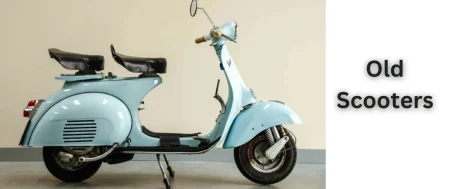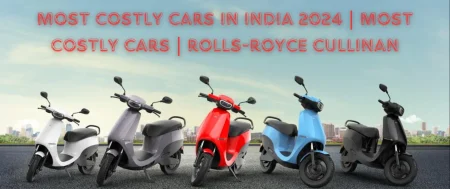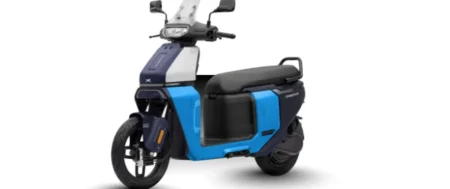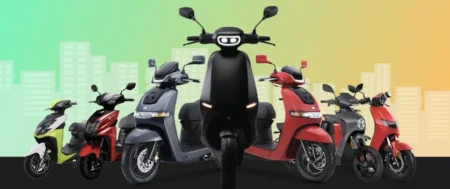Explore Honda electric scooters for eco-friendly, efficient, and affordable urban commuting. Discover top features, models, pricing, and more for sustainable mobility.
Table of Contents
Introduction
Honda has entered the electric scooter market with a strong push towards sustainability and innovation. Their electric scooters represent a commitment to green transportation, offering eco-friendly alternatives for urban commuting. Designed to provide smooth, efficient, and quiet rides, Honda’s electric scooters blend cutting-edge technology with the brand’s signature reliability and performance. With a focus on convenience, safety, and user-friendly features, these scooters aim to meet the growing demand for sustainable urban mobility. As more cities push for cleaner air and reduced traffic congestion, Honda’s electric scooters are poised to play a key role in the future of urban transportation.
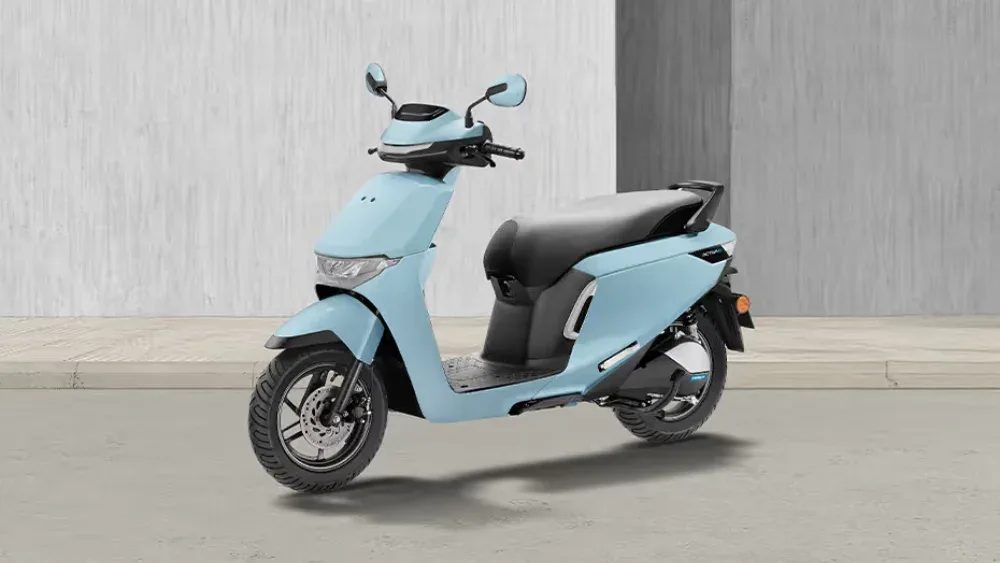
Why Choose an Electric Scooter?
Eco-Friendly and Sustainable
Electric scooters offer a significant reduction in carbon emissions compared to traditional gasoline-powered vehicles. By choosing an electric scooter, you contribute to a cleaner environment and help combat air pollution in urban areas.
Cost-Effective Transportation
Electric scooters are cheaper to maintain and operate than traditional vehicles. With lower fuel costs and minimal maintenance, riders can save money in the long run. Charging an electric scooter is far less expensive than filling up a gas tank, making it an ideal choice for budget-conscious commuters.
Efficient and Convenient
Electric scooters are ideal for short commutes and navigating through traffic in busy urban areas. Their compact size makes them easy to park, while their electric-powered motors offer smooth acceleration and ease of use. They are perfect for avoiding traffic jams and reaching your destination quickly.
Reduced Noise Pollution
Unlike traditional vehicles, electric scooters produce very little noise. This helps reduce the overall noise pollution in cities, creating a quieter and more peaceful environment.
Health Benefits
While electric scooters require less physical effort compared to bicycles or walking, they still offer some health benefits by encouraging more outdoor activity. Riders also experience less stress from traffic and crowded public transport, leading to improved mental well-being.
Future-Ready Technology
With rapid advancements in electric vehicle technology, electric scooters are becoming smarter and more reliable. Many come equipped with features like app connectivity, GPS navigation, and advanced safety systems, offering an upgraded riding experience.
Honda’s Vision for Sustainable Mobility
Paving the Way for a Greener Future
Honda is dedicated to creating a future where mobility is environmentally responsible, efficient, and accessible. Their vision for sustainable mobility goes beyond just offering electric vehicles—it focuses on reducing environmental impact while enhancing the quality of life. By innovating in the electric vehicle (EV) sector, including electric scooters, Honda is taking significant steps toward achieving carbon neutrality and promoting sustainable urban transportation.
Commitment to Carbon Neutrality
Honda has set ambitious goals for 2050, aiming to reach carbon neutrality across all products and corporate activities. This includes the electrification of their vehicles and increasing the use of renewable energy in their operations. The introduction of electric scooters is a part of Honda’s broader strategy to reduce carbon emissions and contribute to cleaner, more sustainable cities.
Focus on Innovation and Technology
Honda’s electric scooters are designed with cutting-edge technology, including efficient electric motors and advanced battery systems that optimize performance and extend range. With a focus on smart mobility solutions, Honda is working to create a seamless, future-ready transportation ecosystem, integrating electric scooters with other forms of eco-friendly transportation like electric cars and public transit.
Enhancing Urban Mobility
Honda envisions a future where its electric scooters provide a practical and eco-friendly alternative to traditional vehicles for city commuters. By offering affordable, easy-to-use, and sustainable transportation options, Honda is helping to reduce traffic congestion, lower pollution levels, and improve the overall quality of urban life.
Top Features of Honda Electric Scooters
Eco-Friendly and Sustainable Design
Honda’s electric scooters are designed with sustainability in mind. They produce zero emissions during operation, contributing to cleaner air and helping to reduce the environmental footprint of urban transportation.
Advanced Battery Technology
Equipped with high-performance lithium-ion batteries, Honda electric scooters offer impressive range and efficiency. The batteries are designed for fast charging and long-lasting performance, ensuring that riders can enjoy extended trips without frequent recharges.
Smooth and Quiet Ride
Honda’s electric scooters provide a smooth, silent ride. The electric motor reduces noise pollution compared to traditional gasoline-powered vehicles, offering a peaceful commuting experience while also minimizing noise in urban environments.
Smart Connectivity Features
Many Honda electric scooters come with integrated smart technologies, such as Bluetooth connectivity, mobile app integration, and GPS navigation. These features allow riders to track their scooter’s performance, monitor battery life, and access real-time information for enhanced convenience.
Lightweight and Compact Design
Honda’s electric scooters are built to be lightweight and compact, making them easy to maneuver through traffic and navigate tight spaces. Their small size also allows for convenient parking in urban environments where space is limited.
Enhanced Safety Features
Safety is a top priority for Honda, and their electric scooters are equipped with advanced safety features like anti-lock braking systems (ABS), LED lighting, and robust suspension systems. These features ensure stability, visibility, and safe riding, even in challenging road conditions.
Low Maintenance Costs
Electric scooters generally require less maintenance than their gas-powered counterparts. Honda’s electric scooters are designed to minimize the need for costly repairs, offering riders a more economical and hassle-free ownership experience.
Stylish and Modern Aesthetics
Honda combines functionality with style, offering electric scooters that are visually appealing with sleek, modern designs. These scooters not only provide an eco-friendly transportation solution but also make a statement on the road with their cutting-edge aesthetics.
Regenerative Braking System
Some Honda electric scooters feature regenerative braking, which converts kinetic energy into electrical energy during braking. This feature helps recharge the battery, enhancing energy efficiency and extending the scooter’s range.
Customizable Riding Modes
Honda electric scooters often offer different riding modes, such as eco mode, which helps conserve battery life, and sport mode, for more dynamic acceleration. This allows riders to tailor their experience based on their preferences and riding conditions.
Popular Honda Electric Scooter Models
Honda Activa Electric (Expected Model)
Honda’s iconic Activa scooter is expected to enter the electric vehicle market soon, offering a seamless transition from their popular petrol-powered scooters. With modern electric technology, it will feature an efficient battery system, smart connectivity, and enhanced safety features, all while retaining the Activa’s reputation for reliability and comfort. Once launched, it is likely to be one of the most popular electric scooters in urban areas.
Honda PCX Electric
The Honda PCX Electric is one of Honda’s flagship electric scooter models, offering a blend of performance, style, and innovation. It features an advanced lithium-ion battery, ensuring a smooth and efficient ride. With a sleek design, high-tech features, and a comfortable ride, the PCX Electric is an excellent choice for commuters seeking an eco-friendly solution for urban travel.
Honda Benly e Electric
Designed for both commercial and personal use, the Honda Benly e is an electric scooter tailored to businesses that require reliable and cost-effective delivery solutions. With its rugged build and large cargo capacity, the Benly e is perfect for delivery services in urban areas. The scooter comes with an efficient electric motor, allowing for reduced operational costs and eco-friendly transportation.
Honda CRF-E Electric
The Honda CRF-E is an electric dirt bike designed for off-road enthusiasts looking for a quieter, more eco-conscious riding experience. With features that replicate the handling and performance of its gas-powered counterparts, the CRF-E brings a fresh approach to electric off-road biking. It is built for adventure, offering excellent torque and reliability while reducing the environmental impact typically associated with traditional off-road vehicles.
Performance and Range of Honda Electric Scooters
Powerful and Efficient Motors
Honda electric scooters are equipped with advanced electric motors that offer smooth acceleration, quiet operation, and excellent performance across different riding conditions. Whether you’re navigating through city streets or cruising along open roads, Honda’s electric motors provide enough power to ensure a comfortable and reliable ride. The motor’s efficiency optimizes energy usage, delivering a good balance of power and battery conservation.
Impressive Range
Honda electric scooters are designed to cover significant distances on a single charge, making them ideal for urban commuting. The range varies depending on the model, but many Honda electric scooters can travel between 60 to 100 kilometers per charge, making them perfect for daily commutes and short trips around the city. The inclusion of energy-efficient batteries ensures that riders can enjoy longer trips without worrying about frequent recharging.
Fast Charging Capability
Honda electric scooters come with fast-charging capabilities, allowing riders to recharge their scooters quickly and get back on the road. Depending on the model and battery capacity, a full charge can take anywhere from 4 to 6 hours, but with quick charging options, you can top up the battery in less time, allowing for greater convenience and flexibility.
Regenerative Braking
Some Honda electric scooter models are equipped with regenerative braking systems, which help to recharge the battery during braking. This feature enhances the range and overall energy efficiency of the scooter, making it even more reliable for longer trips. Regenerative braking recovers energy that would otherwise be lost and uses it to extend the scooter’s range.
Real-World Performance
Honda electric scooters offer a stable and responsive ride, with top speeds ranging from 45 to 80 km/h, depending on the model. This makes them suitable for both city commuting and longer rides at highway speeds. The performance is optimized for different riding modes, allowing riders to switch between eco modes for longer battery life or sport modes for more dynamic performance when needed.
Charging Options and Infrastructure for Honda Electric Scooters
Home Charging
One of the most convenient options for charging Honda electric scooters is home charging. Most models come with a standard charging cable that can be plugged into any standard household outlet. This allows riders to charge their scooters overnight or whenever they are not in use, ensuring they are ready for daily commutes. With home charging, there is no need to visit external charging stations, offering greater convenience and flexibility.
Fast Charging Stations
For riders who need quicker charging options, many Honda electric scooters are compatible with fast charging stations. These stations significantly reduce charging time, providing up to 80% charge in as little as 30-60 minutes, depending on the model and battery size. Fast chargers are often found in public spaces, shopping centers, and designated charging stations, making it easy for riders to top up their scooter’s battery during a break or while running errands.
Public Charging Infrastructure
As electric scooters and vehicles become more popular, many cities are expanding their charging infrastructure. Public charging stations are being set up in urban areas, offering easy access to charging points for riders who don’t have the ability to charge at home or need to top up their battery during their commute. Honda electric scooters can be easily charged at these stations, ensuring that riders have ample options to keep their scooters powered up.
Battery Swapping (Upcoming Feature)
In some markets, Honda is exploring the possibility of battery-swapping services for electric scooters. This innovative solution allows riders to exchange a depleted battery for a fully charged one at designated battery swap stations. This could significantly reduce downtime for riders and increase convenience, especially in urban areas where quick charging is essential.
Mobile Charging Solutions
Some Honda electric scooters may offer mobile charging options, where riders can use portable chargers to top up their scooter on the go. While this is more of a supplementary charging method, it can be useful in emergencies or when a charging station is not nearby.
Charging Time and Efficiency
Honda electric scooters are designed for efficiency when it comes to both charging time and power consumption. The typical charging time for a full charge is between 4-6 hours using standard home chargers, but the introduction of fast charging infrastructure has made it possible to reduce this time significantly. Additionally, the use of regenerative braking technology further enhances battery life and efficiency.
Charging Options and Infrastructure for Honda Electric Scooters
| Charging Option | Description |
|---|---|
| Home Charging | Standard household outlets (110-240V) for convenient overnight charging. No specialized equipment required. |
| Public Charging Stations | Charging stations available in urban areas, shopping centers, and public spaces, offering both standard and fast charging options. |
| Fast Charging Solutions | Fast chargers that can charge up to 80% in 30-60 minutes, available at dedicated charging stations. |
| Battery Swapping Infrastructure | Upcoming infrastructure allowing riders to swap a depleted battery for a fully charged one, providing quick turnaround time. |
| Mobile Charging Solutions | Portable chargers for emergency situations, offering flexibility when public charging stations are not nearby. |
| Charging Time and Efficiency | Standard charging takes 4-6 hours with a home charger, while fast charging reduces time significantly. Regenerative braking improves energy efficiency and range. |
Benefits of Honda Electric Scooters
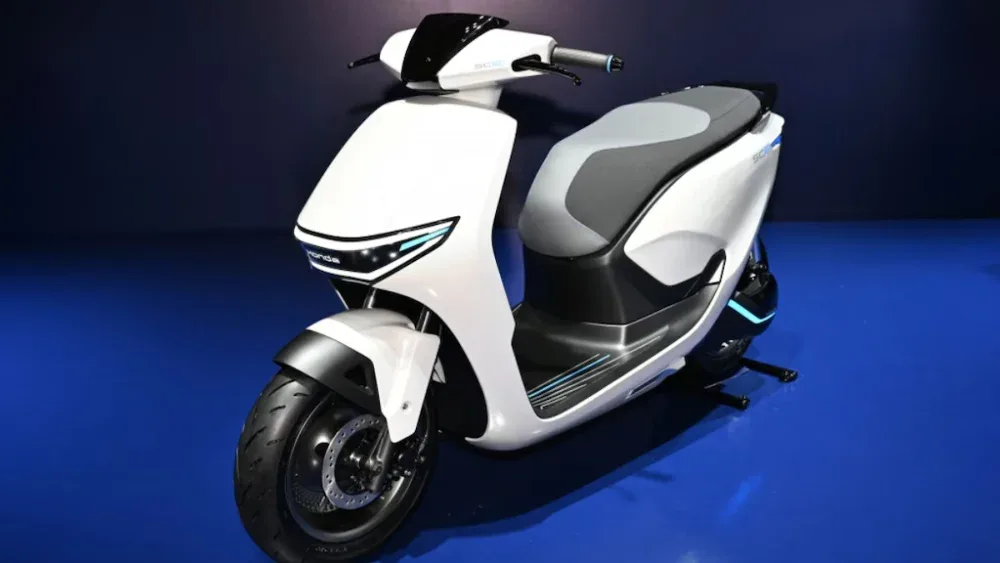
Environmentally Friendly
Honda electric scooters produce zero emissions during operation, helping to reduce air pollution and combat climate change. They are a sustainable alternative to gasoline-powered vehicles, making them an eco-friendly choice for urban commuting.
Cost-Effective
Electric scooters are cheaper to operate and maintain compared to traditional gasoline scooters. With lower fuel costs and fewer maintenance requirements, Honda electric scooters can save riders money over time, making them a more economical transportation option.
Quiet and Smooth Ride
Honda electric scooters provide a quiet and smooth riding experience. Unlike conventional scooters, they operate with minimal noise, reducing noise pollution and offering a peaceful commute in busy urban environments.
Low Maintenance
Electric scooters generally require less maintenance than their petrol counterparts, as they have fewer moving parts. This translates to reduced costs for repairs and less frequent visits to service centers, offering a hassle-free ownership experience.
Convenient Charging Options
With a variety of charging options, including home charging and access to public charging stations, Honda electric scooters provide flexibility and convenience. Fast charging capabilities also reduce downtime, allowing riders to recharge quickly and get back on the road.
Improved Urban Mobility
Honda electric scooters are ideal for urban commuting, offering a compact and agile solution for navigating through traffic. Their lightweight design and ability to park easily in small spaces make them perfect for crowded cities where traditional vehicles struggle to move and park.
Enhanced Safety Features
Honda integrates advanced safety technologies in their electric scooters, such as anti-lock braking systems (ABS), LED lights for visibility, and robust suspension systems. These features contribute to safer rides in varying road conditions and improve overall riding stability.
Stylish and Modern Design
Honda electric scooters combine functionality with aesthetics, offering modern, sleek designs that are visually appealing. They not only provide practical transportation but also make a statement on the road with their stylish looks.
Smart Connectivity
Many Honda electric scooters come equipped with smart features like Bluetooth connectivity, GPS navigation, and mobile app integration. These features allow riders to track their scooter’s performance, monitor battery life, and even find the nearest charging station.
Regenerative Braking System
Some Honda electric scooters feature regenerative braking, which helps recover energy during braking. This not only extends the battery life but also increases the scooter’s energy efficiency, allowing for longer rides on a single charge.
Pricing and Availability of Honda Electric Scooters in 2024
| Category | Details |
|---|---|
| Pricing | $995 (Manufacturer’s Suggested Retail Price) |
| Availability | Available through participating Honda and Acura dealerships across the United States. |
| Motor | Permanent magnet, direct drive |
| Peak Output | 490W |
| Torque | 11.8 lb.-ft. |
| Drive | Front-wheel drive |
| Max Speed | 15 mph |
| Battery Capacity | 6.8Ah |
| Charge Time | Approximately 3.5 hours (110V) |
| Range | Up to 12 miles |
Government Policies and Incentives for Electric Scooters
Incentives for Consumers
Governments around the world are offering various incentives to encourage the adoption of electric vehicles (EVs), including electric scooters. These incentives typically include tax credits, rebates, and subsidies aimed at reducing the upfront cost of purchasing electric scooters. Here are some common government incentives:
- Tax Credits and Rebates: Many governments provide financial incentives such as tax credits or rebates for purchasing electric scooters. These incentives can significantly reduce the overall cost of ownership.
- Subsidized Charging Infrastructure: In some regions, the government may provide subsidies for setting up home charging stations or for installing public charging infrastructure, making it easier for riders to recharge their electric scooters.
- Exemption from Road Taxes or Registration Fees: Electric scooter owners may be exempt from road taxes or may benefit from reduced registration fees as part of government efforts to promote environmentally friendly transportation.
- Low-Interest Loans and Financing: Some governments or financial institutions may offer low-interest loans or financing options to make the purchase of electric scooters more affordable.
Local and Regional Policies
Governments at the local and regional levels also support the adoption of electric scooters through specific policies, including:
- Dedicated Lanes for Electric Scooters: In urban areas, some cities are creating dedicated lanes for electric scooters, providing safer and more efficient travel for electric scooter users.
- Zoning and Parking Regulations: To encourage electric scooter use, some municipalities offer designated parking spots and relaxation of zoning regulations for charging stations.
- Government-Funded Electric Scooter Programs: Some local governments run scooter-sharing programs, offering citizens affordable access to electric scooters in an effort to reduce traffic congestion and promote eco-friendly transportation.
Environmental Regulations and Support
Governments are increasingly implementing environmental regulations to encourage the transition to electric mobility:
- Emission Reduction Targets: Many governments have set ambitious targets to reduce carbon emissions, and promoting electric scooters is one way to achieve these goals. By encouraging the use of electric vehicles, including scooters, governments can help reduce urban air pollution.
- Government-Backed Research and Development (R&D): Governments often invest in research and development to improve battery technology, enhance the efficiency of electric scooters, and support the growth of the electric vehicle industry.
International and Regional Cooperation
Countries and regions are cooperating to set common standards for electric vehicles, including electric scooters. This international effort aims to streamline the manufacturing, distribution, and charging infrastructure for electric scooters, helping to reduce costs and encourage cross-border adoption.
Comparison of Honda Electric Scooters with Other Brands
When comparing Honda electric scooters with other brands in the market, several factors such as performance, price, features, and overall value for money must be considered. Here’s a breakdown of how Honda electric scooters measure up against competitors:
Performance
| Feature | Honda Electric Scooters | Other Brands (e.g., Ather, Bajaj, Ola) |
|---|---|---|
| Max Speed | Up to 15 mph (Motocompacto) | 45-70 mph (depending on model) |
| Range | Up to 12 miles | 70-150 miles (depending on model) |
| Motor Power | 490W | 3kW – 8kW (depending on model) |
| Acceleration | Moderate (Urban commuting focus) | Fast acceleration (for higher performance models) |
| Battery Type | Lithium-Ion | Lithium-Ion or Lithium-Phosphate |
| Charging Time | 3.5 hours (110V) | 3-6 hours (varies by model and charger) |
Honda’s electric scooters are generally designed for urban commuting with a focus on practicality and affordability. In contrast, brands like Ather, Bajaj, and Ola offer higher-performance electric scooters, with greater range and faster acceleration, catering to both city riders and long-distance commuters.
Price
| Brand | Price Range (2024) |
|---|---|
| Honda Electric Scooters | $995 (Motocompacto) |
| Ather Energy | $1,400 – $2,500 (depending on model) |
| Ola Electric | $1,000 – $1,500 (depending on model) |
| Bajaj Chetak Electric | $1,200 – $1,500 (depending on variant) |
Honda’s Motocompacto is positioned as a budget-friendly, compact scooter, making it an appealing choice for consumers seeking an affordable electric scooter. However, other brands like Ather, Bajaj, and Ola offer more advanced models with greater features, which come at a higher price point.
Features
| Feature | Honda Electric Scooters | Other Brands (e.g., Ather, Bajaj, Ola) |
|---|---|---|
| Smart Connectivity | Limited (basic app features) | Advanced (Bluetooth, GPS, App Integration) |
| Regenerative Braking | Available on some models | Available on most models |
| LED Lighting | Standard | Standard |
| Safety Features | Basic (ABS) | Advanced (ABS, CBS, traction control) |
| Design | Compact, sleek | Modern, premium designs |
| Customizable Options | Minimal | Extensive (colors, add-ons) |
Honda’s electric scooters, such as the Motocompacto, come with basic features aimed at affordability and practicality. In comparison, brands like Ather, Bajaj, and Ola offer more advanced connectivity, safety features, and customization options, making them more suitable for tech-savvy users and those who prioritize high-end features.
Charging Infrastructure
| Brand | Charging Options |
|---|---|
| Honda Electric Scooters | Standard home charging (110V), Public Charging Stations |
| Ather Energy | Fast charging, Home charging, Public Charging network |
| Ola Electric | Fast charging, Home charging, Ola charging network |
| Bajaj Chetak Electric | Home charging, Limited public charging stations |
Honda electric scooters rely on standard home charging and access to public charging stations. Other brands like Ather, Ola, and Bajaj have more established fast charging networks, offering quicker recharge times and greater convenience for long-distance riders.
User Reviews and Testimonials for Honda Electric Scooters
Honda electric scooters, including the Motocompacto, have received a variety of feedback from users around the world. Below are some common themes and key points from user reviews and testimonials:
Positive Feedback
Affordability
Many users appreciate the affordability of Honda’s electric scooters. At a price of $995, the Motocompacto is considered budget-friendly compared to other electric scooters in the market. Reviewers have mentioned that it’s an excellent choice for those looking for a basic and economical electric scooter for short commutes.
- “I bought the Motocompacto for my daily commute around the city. It’s a great value for the price, and the cost savings on gas have been significant.” – John, California
Compact and Easy to Use
The compact design of the Motocompacto is praised by users for its portability and ease of use, especially in crowded urban environments. Its lightweight build allows for easy storage and handling, which is perfect for city dwellers.
- “The scooter is lightweight and easy to maneuver. I can fold it and take it inside my apartment without any hassle.” – Sarah, New York
Quiet Ride
Users enjoy the quiet operation of Honda’s electric scooters. The absence of the engine noise typically associated with gas-powered scooters is a highlight, making for a smoother and more peaceful ride.
- “I love how quiet the Motocompacto is. It’s perfect for riding through the city without disturbing anyone.” – Mark, Texas
Sustainability
Many riders appreciate the environmental benefits of using electric scooters. With zero emissions, Honda’s electric scooters are seen as a cleaner and greener mode of transportation.
- “I feel good knowing that I’m reducing my carbon footprint while saving money on fuel.” – Emily, Florida
Negative Feedback
Limited Range and Speed
Some users have mentioned that the range of the Motocompacto (up to 12 miles) may be too limited for longer commutes. The top speed of 15 mph is also considered slow compared to other electric scooters in the market, which can reach speeds of up to 45 mph.
- “It’s a great scooter for short trips, but I wish it had a longer range for my daily commute to work.” – Chris, Arizona
Basic Features
While the simplicity of the Motocompacto is appreciated by many, some users have expressed a desire for more advanced features, such as better smart connectivity or additional safety features.
- “It’s a good scooter for the price, but I wish it had more features like GPS or an app to track performance.” – Lisa, Chicago
Charging Time
Although the charging time of around 3.5 hours is reasonable for many users, some have mentioned that it can be inconvenient if they need to use the scooter frequently throughout the day.
- “The charging time is a bit long, especially if you need to use the scooter multiple times a day.” – Brian, Los Angeles
Honda’s Future Plans in the EV Space
Honda has been making significant strides in the electric vehicle (EV) market, with ambitious plans to expand its electric mobility offerings. As the automotive industry continues to shift toward more sustainable solutions, Honda is aligning its strategies to stay ahead of the curve. Here’s a look at Honda’s future plans in the EV space:
Expansion of Electric Scooter Portfolio
Honda’s current electric scooter offerings, such as the Motocompacto, are just the beginning of its plans to expand in the two-wheeled electric vehicle market. In the future, Honda aims to introduce more electric scooter models that cater to different segments, from urban commuters to performance-oriented riders. These scooters will be equipped with improved battery technology, longer ranges, and smarter features like advanced connectivity, making them even more attractive to consumers.
Global EV Manufacturing and Electrification Targets
Honda has set a target to make 100% of its global vehicle sales electric by 2040. This includes both cars and two-wheeled vehicles like motorcycles and scooters. The company plans to invest heavily in electrification, with significant funding directed toward developing new electric platforms, batteries, and manufacturing technologies. By increasing its EV production, Honda aims to reduce carbon emissions and contribute to global sustainability goals.
Partnerships for Battery Production
In an effort to address the growing demand for electric vehicles, Honda is working closely with various partners to secure a steady supply of batteries. The company has entered into joint ventures with battery manufacturers to create next-generation, high-performance batteries. These collaborations will help Honda reduce costs and increase the efficiency of its electric scooters and cars.
Development of Advanced Charging Infrastructure
Honda is working to improve the EV charging infrastructure, which is crucial for the widespread adoption of electric mobility. The company is exploring partnerships to create faster and more accessible charging solutions. In addition to home charging, Honda is focused on developing a network of public charging stations to make it easier for riders and drivers to charge their vehicles.
Sustainability and Carbon Neutrality Goals
Honda has committed to achieving carbon neutrality by 2050, and electric vehicles play a central role in this plan. The company is working to reduce the environmental impact of its manufacturing processes and supply chain, with a focus on using renewable energy and sustainable materials in the production of EVs and batteries. By focusing on sustainability, Honda aims to be a leader in the global transition to a greener, more sustainable future.
Autonomous and Connected EVs
Honda is also exploring the integration of autonomous driving technology in its electric vehicles. While this is more relevant to the automotive segment, the company sees great potential in smart mobility solutions that include connected EVs. By combining electric powertrains with autonomous driving and advanced connectivity features, Honda plans to revolutionize the way people interact with their vehicles, providing a seamless and intelligent driving experience.
Increased Focus on Electric Motorcycles and Mobility Solutions
In addition to electric cars and scooters, Honda is placing greater emphasis on electric motorcycles. The company has plans to release several electric motorcycle models in the coming years, targeting both urban commuters and enthusiasts. With the growing demand for eco-friendly two-wheelers, Honda aims to capitalize on this trend by offering a range of high-performance, zero-emission motorcycles.
Hydrogen and Other Alternative Powertrains
While electric vehicles are a key focus, Honda is also exploring hydrogen fuel cell technology as a future alternative powertrain. The company has already developed hydrogen-powered vehicles, such as the Honda Clarity, and plans to continue research in this area. Although hydrogen may not be as mainstream as battery-electric vehicles, Honda sees it as a viable solution for certain segments of the market, especially for long-range vehicles and heavy-duty transportation.
How to Choose the Right Honda Electric Scooter
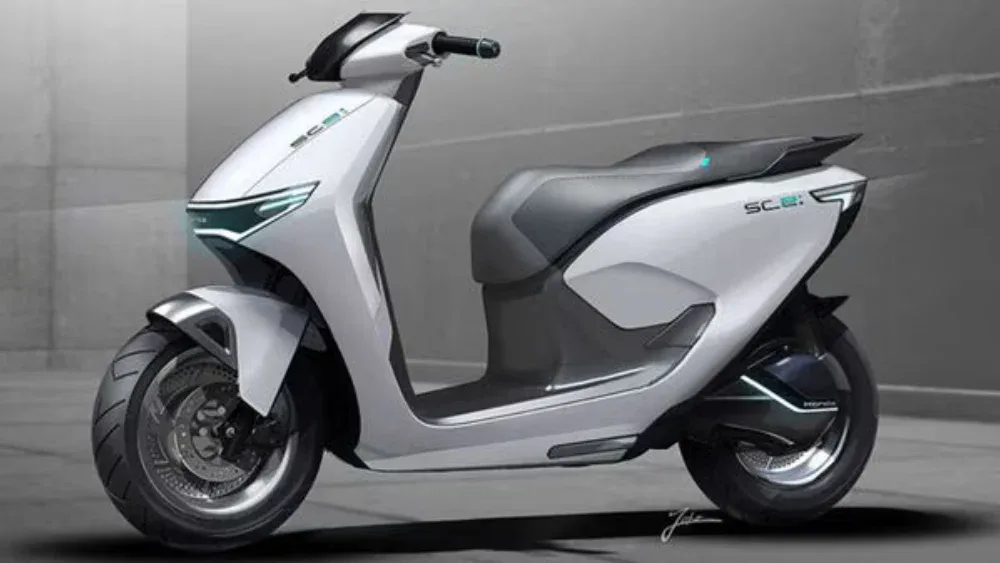
Selecting the right Honda electric scooter depends on your personal preferences, commuting needs, and budget. With a variety of models, features, and specifications, it’s important to evaluate several key factors to ensure you make the best choice for your lifestyle. Here’s a guide on how to choose the right Honda electric scooter:
Determine Your Primary Use
Consider how you plan to use the scooter. Are you looking for a compact, budget-friendly option for short city commutes, or do you need something with more power and range for longer trips? Honda offers scooters like the Motocompacto for light urban commuting, but if you need a more powerful scooter for higher speeds and longer distances, keep an eye out for future models with enhanced performance.
- For short commutes and city rides: A scooter with a smaller battery, compact design, and lower top speed (like the Motocompacto) is ideal.
- For longer distances or higher speeds: Look for models with larger batteries and a higher top speed to meet your commuting needs.
Evaluate the Range
One of the most important factors when choosing an electric scooter is the range, which refers to how far you can travel on a single charge. If your daily commute is relatively short (under 10 miles), a scooter with a range of 10-15 miles should suffice. However, if you need to travel longer distances, consider a model with a higher range.
- Short-range models (10-15 miles): Ideal for short trips or urban commuting.
- Long-range models (30-50 miles): Better suited for longer daily commutes or mixed-use.
Check the Motor Power
The motor power of the scooter will determine how fast and how easily it can accelerate, especially on inclines or rough terrain. For urban commuting, a motor in the range of 500W to 1,000W is sufficient for smooth rides. However, if you need more power for hills or faster speeds, look for scooters with motors above 1,000W.
- Light urban use: 500W-800W motor is typically enough.
- Higher performance and hilly areas: 1,000W+ motors for better speed and power.
Consider the Top Speed
The top speed of the scooter is another important factor, especially if you plan on using it for more than just short trips. In many urban areas, speed limits for scooters may range from 15 mph to 30 mph, so consider whether a scooter with a higher or lower top speed aligns with your needs.
- For city commuting: 15-20 mph is typically enough.
- For faster speeds or longer trips: Look for scooters with a top speed of 25 mph or higher.
Think About Charging Time
Charging time is crucial if you need your scooter ready for use during the day. Most electric scooters take anywhere from 3 to 6 hours to charge fully. If you need a quicker turnaround time, consider models with faster charging capabilities or those compatible with fast-charging stations.
- Standard charging (3-6 hours): Suitable for overnight charging.
- Fast-charging options: Ideal for users who need quick recharges during the day.
Assess the Design and Portability
Design and portability are important if you need to store the scooter in tight spaces or carry it around when not in use. Some Honda scooters, like the Motocompacto, are foldable and lightweight, making them perfect for users who need to bring their scooter inside or take public transportation. Consider the weight, foldability, and size of the scooter to make sure it fits your lifestyle.
- Compact and foldable models: Great for easy storage and portability.
- Larger, more powerful models: Typically less portable but better suited for longer rides.
Budget Considerations
Your budget plays a key role in determining which Honda electric scooter is the best fit. Honda offers models at various price points, so it’s essential to weigh the cost against the features, performance, and benefits. While entry-level scooters are more affordable, they may have limited range and power, while premium models may offer more advanced features at a higher cost.
- Budget-friendly options: Good for short trips, simple commutes.
- Premium models: Higher price point but more features, better performance, and longer ranges.
Safety Features
Ensure the scooter has the necessary safety features, such as a reliable braking system, LED lighting for visibility, and stability features like suspension. Some models may also come with features like ABS (anti-lock braking system) or regenerative braking, which can enhance safety, especially in urban traffic.
- Basic safety features: Suitable for city riding with low-speed limits.
- Advanced safety features: Important for higher-speed models or riding on varied terrain.
Warranty and After-Sales Service
Check the warranty and after-sales services provided by Honda. A strong warranty can provide peace of mind in case of mechanical issues, and reliable customer support can help resolve any issues you encounter. Honda typically offers a standard warranty for electric scooters, covering parts and batteries.
- Look for warranties on battery and motor: These are crucial components of electric scooters.
- After-sales support: Ensure that your local Honda dealership offers services like repairs and maintenance.
User Reviews and Testimonials
Before making a final decision, read reviews and testimonials from other users to get insights into their experiences with the scooter. Look for feedback on reliability, comfort, ease of use, and customer support. Real-world experiences can provide valuable context when comparing different models.
Honda’s electric scooters represent a significant step toward sustainable urban mobility, offering an eco-friendly, cost-effective, and practical transportation solution for city commuters. With a focus on affordability, compact design, and environmental responsibility, Honda provides a range of electric scooters that cater to various user needs. Whether you’re seeking a simple, budget-friendly model like the Motocompacto for short city trips or a more powerful scooter with a longer range for extended commutes, Honda’s offerings provide a reliable option for reducing your carbon footprint and saving on fuel costs.
As the company continues to innovate and expand its electric mobility lineup, Honda’s commitment to sustainability and cutting-edge technology ensures that future models will offer enhanced features such as better performance, longer ranges, and smarter connectivity. Honda’s vision for a greener, more sustainable future is clearly evident in its focus on electric scooters and the overall electrification of its vehicle offerings.
Conclusion
Honda electric scooters offer an innovative and sustainable solution for urban mobility, combining affordability, efficiency, and eco-friendliness. With a growing range of electric scooters designed for various needs—from compact city commutes to longer-distance rides—Honda is setting the stage for a future of cleaner, more accessible transportation. The brand’s commitment to sustainability, alongside continuous technological advancements, ensures that riders can expect higher performance, greater range, and smarter features in upcoming models.
Honda’s electric scooters provide an ideal alternative to traditional gas-powered vehicles, reducing carbon emissions while offering an affordable and practical transportation option. Whether you’re seeking a simple, budget-friendly model or a more powerful scooter, Honda’s electric scooters meet the diverse needs of today’s commuters. With Honda’s focus on innovation and sustainability, these scooters are poised to play a significant role in shaping the future of urban transportation.
By Bestgaddi
FAQs
What is the range of Honda electric scooters?
The range of Honda electric scooters varies depending on the model. Most of Honda’s electric scooters have a range between 10 to 50 miles on a single charge. If you are looking for a scooter for short city commutes, a range of 10-15 miles might be sufficient. For longer distances, look for models with a higher range of 30-50 miles.
How long does it take to charge a Honda electric scooter?
Charging time for Honda electric scooters typically ranges from 3 to 6 hours, depending on the battery size and model. Some models may offer faster charging capabilities, allowing you to recharge in less time, but standard charging usually takes overnight or a few hours during the day.
Are Honda electric scooters suitable for long commutes?
Yes, many of Honda’s electric scooters are designed to handle longer commutes, especially those with a range of 30-50 miles. They offer a combination of power and comfort, making them suitable for both urban commutes and longer-distance rides.
Do Honda electric scooters require a special license or permit to ride?
In most regions, Honda electric scooters fall under the same regulations as regular scooters or bicycles, so they typically do not require a special license. However, local laws may vary, so it’s important to check your area’s specific regulations for age requirements, speed limits, and riding permits.
Are Honda electric scooters easy to maintain?
Honda electric scooters are designed for ease of use and low maintenance. The electric motor requires less maintenance compared to traditional gasoline engines, and the scooters come with features like regenerative braking to reduce wear. Regular checks for tire pressure, brake performance, and battery health are recommended for optimal performance.
How fast can Honda electric scooters go?
Honda electric scooters typically have a top speed ranging from 15 mph to 30 mph, depending on the model. For city commuting, speeds of 15-20 mph are common, but for those seeking higher speeds, certain models may reach up to 30 mph.
Are Honda electric scooters environmentally friendly?
Yes, Honda electric scooters are a more eco-friendly transportation option compared to traditional gasoline-powered vehicles. They produce zero emissions during operation, reducing your carbon footprint and contributing to cleaner air and less pollution in urban areas.
What safety features do Honda electric scooters have?
Honda electric scooters are equipped with safety features such as reliable braking systems, LED lights for visibility, and suspension for smoother rides. Some models also include advanced safety features like anti-lock braking systems (ABS) and regenerative braking to enhance control and stability.
How much do Honda electric scooters cost?
The cost of Honda electric scooters can vary depending on the model and features. Budget-friendly models may start at around $500 to $1,000, while premium models with enhanced performance and longer ranges may cost between $1,500 to $3,000 or more.
Can I use a Honda electric scooter in all weather conditions?
Honda electric scooters are generally designed for urban use and can handle various weather conditions like light rain. However, extreme weather conditions such as heavy rain, snow, or icy roads are not ideal for scooter riding. Always check the manufacturer’s guidelines for specific weather restrictions.
Where can I purchase a Honda electric scooter?
Honda electric scooters can be purchased from authorized Honda dealerships or through the company’s official website, depending on your location. It’s a good idea to visit a dealership to test ride the scooter and discuss financing options or after-sales services.
Do Honda electric scooters have a warranty?
Yes, Honda typically offers a standard warranty for electric scooters, which covers the battery and motor. The duration of the warranty may vary, so it’s recommended to check the specific details for your chosen model. Many dealerships also provide maintenance services as part of the warranty package.
Are there any government incentives for purchasing Honda electric scooters?
In some regions, buyers of electric scooters may qualify for government incentives, tax credits, or rebates aimed at encouraging the adoption of eco-friendly transportation. Check local government websites or speak with your Honda dealer to see if any incentives apply to your purchase.
